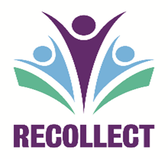Please see information below about two research opportunities for recovery college students

Recovery Colleges Characterisation and Testing 2
(RECOLLECT 2): Exploring the effectiveness and cost effectiveness of Recovery Colleges.
Are you a recently enrolled Recovery College student who has attended no more than 1 introductory class? Are you aged 18 or over?
Are you accessing local secondary NHS mental health services
(e.g., a community mental health team, assertive outreach team, etc.)?
The RECOLLECT research team are looking for participants for a study about Recovery Colleges. The following information comes from the Student Participation Information Sheet and gives an overview of what the study involves.
- ‘RECOLLECT 2 is a five-year programme of work to better understand Recovery Colleges in England. Over the last decade, Recovery Colleges have rapidly expanded. We want to explore how Recovery Colleges might benefit those that use them. The RECOLLECT 2 research team are made up of researchers from Kings College London, The University of Nottingham, and The University of Manchester.’
- ‘Taking part will involve you completing a set of questionnaires at four different time periods over 12 months. This will be as soon as possible after joining the Recovery College, 4 months after joining, 8 months after joining and 12 months after joining. The questionnaires should take under an hour to complete. These may be completed online, via post, or with a researcher present (in person), but may also be completed over the phone, or video call where you will tell the researcher your answers.’
- ‘The questionnaires will ask you about the following topics: quality of life, recovery, hope, resilience, social inclusion, social networks, service use, your wellbeing, your goals, and how you feel about your Recovery College. As part of the baseline questionnaires, we will ask you for some optional socio-demographic information as well.’
- ‘You will also be asked to consent (agree) to allow the researchers to access confidential information in your medical records so that they can find a Trust service user similar to you who is not a Recovery College student. By giving these similar service users the same questionnaire, we can then compare aspects of life between those that enrol at Recovery Colleges and similar service users who do not.’
- ‘The findings may have many possible direct / indirect benefits for Recovery College staff / students in the future, such as helping to inform future service provision. If you decide to take part in the study, you will receive a £15 voucher for each set of questionnaires that you complete (£60 in total).’
- ‘You are free to withdraw your consent to allow us to process any of your personal data that you have without having to give a reason. If you do change your mind, you can ask us to withdraw any of the personal data you have shared with us and any of your personal information that we collected from your medical records.’
If you have any questions or require more information about this project, please complete this expression of interest form:https://kings.onlinesurveys.ac.uk/expression-of-interest-form
Or contact the RECOLLECT Team on: [email protected]

Exploring the carer experience of Recovery Colleges
Volunteers needed for research study on the experiences of family/ informal carers attending Recovery Colleges.
Are you a family member, friend or partner of someone with a mental health problem? Have you had experience of attending a course at or enrolling in a Recovery College? Or are you currently the Carer Lead for your Recovery College?
You may be eligible to participate in a focus group about your experiences, and what might be done to improve these for informal carers attending Recovery Colleges. If preferred, you can discuss these issues with the researcher in an individual interview instead.
Participation will involve:
- A 1hr group discussion with other family/ informal carers
- Likely to be on Microsoft Teams (or in person given sufficient interest).
For more information
Please contact Bryher Bowness at [email protected] . Please speak to a staff member at your Recovery College if you do not have access to the Internet.

 RSS Feed
RSS Feed
